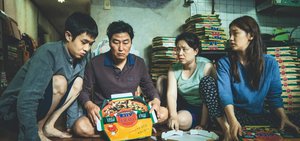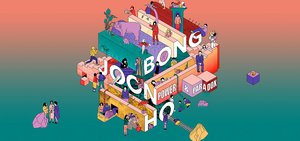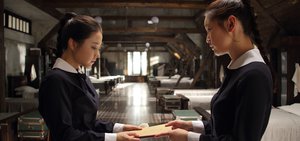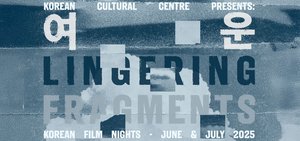Han Okhi and Kaidu Club: A Cinema of Outsiders
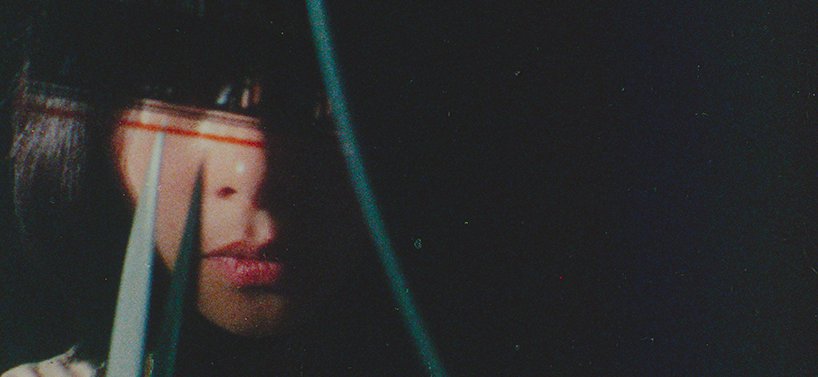
There are two prejudices in cinema as it exists: filmmaking is only a man’s job, and movies should be a box office success. We, as outsiders, will break these two stereotypes. – Kaidu Club, Chosun Ilbo, March 30, 1974
In 1974, Han Okhi and a group of fellow students from Ewha Women’s University in Seoul founded the boldly experimental Kaidu Club, Korea’s first feminist film collective. Committed to inventive punk-inflected radical and outsider practices, Han, both a leading member and director, placed women not only behind the camera but in front of it as well, asserting her presence as the face of an emerging cinema.
This collective of feminist filmmakers included artists and academics Kim Jeom-seon, Lee Jeong-hee, Han Soon-ae, Jeong Myo-sook, and Wang Gyu-won. Together, they ambitiously and playfully explored cinematic form, deploying avant-garde amateur production and exhibition strategies in direct response to the pervasive misogyny of 1970s Korea, entrenched not only in the authoritarian regime of President Park Chung-hee but within the structures of daily life and the film industry itself.
Kaidu Club deliberately positioned itself outside the dominant and oppressive male-centric film industry. They organised their independent film festivals and participated in multimedia art exhibitions, expanding the terrain of filmmaking and asserting its place within a broader field of artistic and political intervention. They organised the first Korean Experimental Film Festival in 1974, staging it on the rooftop of Seoul’s Shinsegae department store.
Rejecting the prevailing conventions of production, narrativity, and exhibition, Kaidu Club developed a radically feminist film practice that sought to unmake the assumptions underpinning cinema itself. They embraced experimentalism as a gateway into other ways of seeing and being, challenging narrative expectations and defying every rule.
Though active for only about four years, this inventive and politically driven group became one of the most significant collective resistances to emerge from Korea’s vibrant university film club scene. This programme brings together some of their most vital works—films that disrupted cinematic norms and continue to provoke, resonate, and invite reflection today.
+ Intro by Emily Jisoo Bowles. Emily Jisoo Bowles is a British-Korean film critic and film programmer based in London.
- Untitled 77-A
무제 77-A
Directed by Han Okhi
6 min | 1977 | Korea | Colour
Copy Source: National Asian Culture Center
An experimental meditation on censorship and performance using the kinetic rebellion of 16mm, Untitled 77-A features the young director Han Okhi brutally splicing, slashing, and projecting light through her strips of film onto her studio walls and herself. Co-founding member and painter Kim Jeomson plays the main role alongside Han herself. Celluloid becomes both resistance and body, amplified by an unyielding, direct gaze into the camera, embodying the feminist autonomy of Kaidu’s reactive manifesto. - The Middle Dog Day
중복
Directed by Han Okhi
7 min | 1974 | Korea | Black & White
Copy Source: National Asian Culture Center
Using shadow, perspective, and stop-motion, this film playfully explores the surreal potential of the camera-eye, conjuring imaginative domestic motifs—such as a rope—to reorganise and reimagine familiar objects, and with them, the fixity of meaning itself, as fluid and mutable design. - The Hole
구멍
Directed by Han Okhi
8 min | 1974 | Korea | Black & White
Copy Source: National Asian Culture Center
A bold, brash expression of artistic restraint, told through an array of experimental techniques that present iconographic images, made in direct opposition to the rigidity and structure of 1970s social and political rule in Korea. The Hole explores the psychological realm of oppression through architectural liminality, consistently referencing the materiality and process of analogue image-making and film, exposing labour and form. - Colour of Korea
색동
Directed by Han Okhi
8 min | 1976 | Korea | Colour
Copy Source: National Asian Culture Center
Through a montage of Korean archival footage and psychedelic illumination, propagandistic images of Korean history are realigned and counteracted by a jubilant presentation of cultural music, architecture, and women’s figures—alive in song, dance, and procession. The film reflects on traditional costume, visual media, and feminine expression. Evoking the traditional colours of Korea through a double-print technique, it opens up revitalised histories that reject patriarchal narratives, celebrating instead the female body and interiorities. - The Silence of Love
님의 침묵
Directed by Han Okhi
36 min | 1991 | Korea | Colour | Korean with English Subtitles
Copy Source: National Asian Culture Center
Transforming the verse of popular poet Han Yong-un (also known as ‘Manhae’), this later-stage film by Han Okhi weaves memories of a remembered lover into an extraordinary collage of cine-poetic yearning. Featuring fifteen poems from the revolutionary poet’s Silence of Love, the film encapsulates Kaidu Club’s dedication to exploring insurgent and complex Korean art forms, colliding the intertextuality of cultural ephemera with intimate experimental expression. Screened for the first time in the UK, its mellowed stylistic approach marks Han Okhi’s departure from Kaidu—but it continues to resonate with the same ethos. Translations and subtitles from the original Korean from Francisca Cho’s Everything Yearned For: Manhae’s Poems of Love & Longing. English subtitles courtesy of the Harvard Film Archive
All films courtesy of the National Asian Culture Center, Gwangju.

